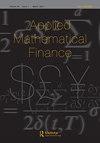纳什均衡的深度q学习:Nash- dqn
Q3 Mathematics
引用次数: 19
摘要
多智能体随机博弈的无模型学习是一个活跃的研究领域。然而,现有的强化学习算法通常仅限于零和游戏,并且仅适用于小的状态-行动空间或其他简化设置。在这里,我们开发了一种新的数据高效的深度q学习方法,用于一般和随机博弈的纳什均衡的无模型学习。该算法对随机对策进行局部线性二次展开,得到解析可解的最优对策。扩展由深度神经网络参数化,使其具有足够的灵活性来学习环境,而无需经历所有状态-动作对。我们研究了源自标签不变随机博弈的算法的对称性,并作为概念证明,将我们的算法应用于竞争性电子市场中学习最优交易策略。本文章由计算机程序翻译,如有差异,请以英文原文为准。
Deep Q-Learning for Nash Equilibria: Nash-DQN
ABSTRACT Model-free learning for multi-agent stochastic games is an active area of research. Existing reinforcement learning algorithms, however, are often restricted to zero-sum games and are applicable only in small state-action spaces or other simplified settings. Here, we develop a new data-efficient Deep-Q-learning methodology for model-free learning of Nash equilibria for general-sum stochastic games. The algorithm uses a locally linear-quadratic expansion of the stochastic game, which leads to analytically solvable optimal actions. The expansion is parametrized by deep neural networks to give it sufficient flexibility to learn the environment without the need to experience all state-action pairs. We study symmetry properties of the algorithm stemming from label-invariant stochastic games and as a proof of concept, apply our algorithm to learning optimal trading strategies in competitive electronic markets.
求助全文
通过发布文献求助,成功后即可免费获取论文全文。
去求助
来源期刊

Applied Mathematical Finance
Economics, Econometrics and Finance-Finance
CiteScore
2.30
自引率
0.00%
发文量
6
期刊介绍:
The journal encourages the confident use of applied mathematics and mathematical modelling in finance. The journal publishes papers on the following: •modelling of financial and economic primitives (interest rates, asset prices etc); •modelling market behaviour; •modelling market imperfections; •pricing of financial derivative securities; •hedging strategies; •numerical methods; •financial engineering.
 求助内容:
求助内容: 应助结果提醒方式:
应助结果提醒方式:


